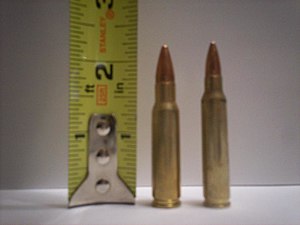I spend more time than I should with my Xbox 360. Well, since mine decided to RROD, I figure I have some time to work on my writing skills (I will neglect the the two book reviews and upcoming research paper for the time being). One thing I enjoy is listening to the endless online debate as to the superiority of one game over another. There is nothing better than hearing a 14 year old say that Rainbow Six Vegas 2 is more "tactical" than Call of Duty 4, Modern Combat.
Well, the definition of tactical is "Of, relating to, used in, or involving military or naval operations that are smaller, closer to base, and of less long-term significance than strategic operations." Okay, perhaps tactical is the wrong word. I'll use my own word here: tacti-cool. Tacti-cool is the ability pretty much anything to convey a certain sense of military cool-ness, whether believable or not.

First up, Call of Duty 4. I'll say up front that I'm biased towards this game. Its extremely fast pace combined with what I'll call the 'chaotic' element of war makes for the perfect military simulator. I was down in the basement of my building the other day and a contractor was showing off the latest urban combat simulator designed for small unit leaders to work out their planning and C2 skills. It sucked; looking something like the Delta Force PC game from 1997. Wow, I could take a stack of networked 360's, throw headsets and paddles in the hands of a squad and send them in to clear buildings and streets in a much more realistic fashion with COTS (commercial off the shelf) COD4. It is that good, revolutionary in fact.
But you all already know that; it did unseat Halo 3 from the top of the Xbox Live list. That's not to say it does not have it's faults. There is no cover system a la Gears of War. Cover is gained by merely walking behind, crouching, or going prone. There is some great realism to this. If you lay down in a field of high grass, guess what? You can't see crap. Most games tend to give you some kind of overhead 'cheater' view of pending danger. Not COD4, when you down, you're down. I have some problems with the weapons and equipment. What we carry downrange is actually superior to the in-game devices.
We use Aimpoints and Eotech with magnifiers while the folks at Treyarch (COD4 Developer) think we all run around with Chinese-made red dots. Nice try guys. The game does include the ACOG, but we also carry a lot more ammo and grenades. I'm being picky, I understand that developers limit weapons to even out the competition. If everyone had an M203, that's all they would use.

Ok, Rainbow Six Vegas 2. If all you ever played were this game, you would think it's the cat's meow. It has a lot to offer. Excellent coop campaign play for up to 4 players, endless online match variations, and the best custom-player design, ever. Seriously, you can put your own face on your player, choose from endless body armor/gear and camo pattern designs. You also get to choose from the baddest selection of modern combat weapons this side of the History Channels Future Weapons. That is definitely tacti-cool.
For me, that's where the game's advantages over COD4 end. First the pacing of the game is super slow. It takes forever to get from point A to B and the sprint feature is useless. For being elite troopers, they can't hustle more than about 20 meters at a time. Even when you more fast, it feels slow. Switch back to COD4 after a couple of hours of R6V2, and you'll feel like you're playing on crack.
To R6V2's credit, this game is really last generation, feeling more like R6LV 1.2 than 2. I believe it's purpose was to finish the storyline to get the team out of Las Vegas and moving towards Ubisoft's next big technical leap while refining the character design and multiplayer elements from the first game.
The Verdict: COD 4 no contest.
It's really an unfair comparison. COD 4 looks better, plays better, and has an overall better design. To me it comes down to 'feel'; simply put, COD4 'feels' more like war than R6V2. Of course, R6V2 is more like a surgeons scalpel to COD4's hammer. COD4 is supposed to be brutal and intimidating (try winning the game on veteran difficulty), after all, war is hell. I routinely cringe when the other team calls in a CAS strike (close air support) and my subwoofer (SVS PC-Ultra a.k.a. the intimidator) tears the wall down.
But I will take a moment to call out developers for the next round of 'modern' combat game I would like to see for the next generation of combat games:
- First, guys, give me a full combat load. I'm not a whuss and can carry a bit more than 300 rounds and 2 hand grenades.
- Second, the in-game comms are too good. We don't have that many radios so if you leave your squad, you might be screwed. I would like to see some proximity based communications that would limit you to shouting distance if you weren't one a couple of key dudes with a radio.
- Realistic weapons configurations, please.
- Tone down the sniper rifles, please. Dudes are not that good of shots in real life, they shouldn't be in the games either.
- Bring the Spooky. If you played COD4, then you're familiar with the wicked AC-130 sequence. Bring that to multiplayer.
That's it. For you haters, I understand these are two very different games, but since they are the last and greatest. Comparisons are going to be made so get over and get ready for GTA IV.



























